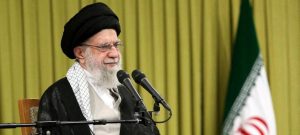The National Assembly’s Standing Committee on Finance has given the green light to the government’s plan to introduce Rs36 billion in new taxes as part of the proposed finance bill.
This decision followed in-depth consultations with the government’s economic team, despite resistance from several committee members. Officials justified the tax increase as a means to address the fiscal shortfall caused by two key adjustments: an 8% reduction in the proposed tax on solar panels and a 4% higher-than-anticipated raise in government salaries.
Read more: World Bank Approves $102 Million for Pakistan’s Resilient and Accessible Microfinance (RAM) Project
The Chairman of the Federal Board of Revenue (FBR) stated that six alternative tax proposals had been presented to the International Monetary Fund (IMF), three of which received approval. These include:
- A Federal Excise Duty (FED) of Rs10 per chick on hatcheries
- An increase in income tax on Treasury Bill investments from 15% to 20%
- A hike in tax on mutual fund investments from 25% to 29%
The committee further advised against imposing a levy on hybrid vehicles under the electric vehicle (EV) policy. However, the Minister of State for Finance noted that withdrawing this tax would not be feasible due to binding agreements with the IMF. While some members proposed raising taxes on luxury cars instead, the economic team stated that the terms with the IMF were already finalized, though they agreed to consider the suggestion.
Committee member Omer Ayub raised alarms about the potential economic fallout from the Iran-Israel conflict, especially after the U.S. targeted Iranian nuclear sites, and how it might impact Pakistan’s fuel imports and overall budget.
In response, the state minister reassured members that Pakistan’s petroleum reserves are sufficient for the time being, as confirmed by the Oil and Gas Regulatory Authority (OGRA), and said the situation is under close watch.
Acting Committee Chairman Javed Hanif stressed that global geopolitical shifts are beyond control, and the government will adapt its policies based on how events unfold. The session also saw tense moments, particularly between Omer Ayub, Javed Hanif, and Bilal Azhar Kayani, over the presented budgetary data.





